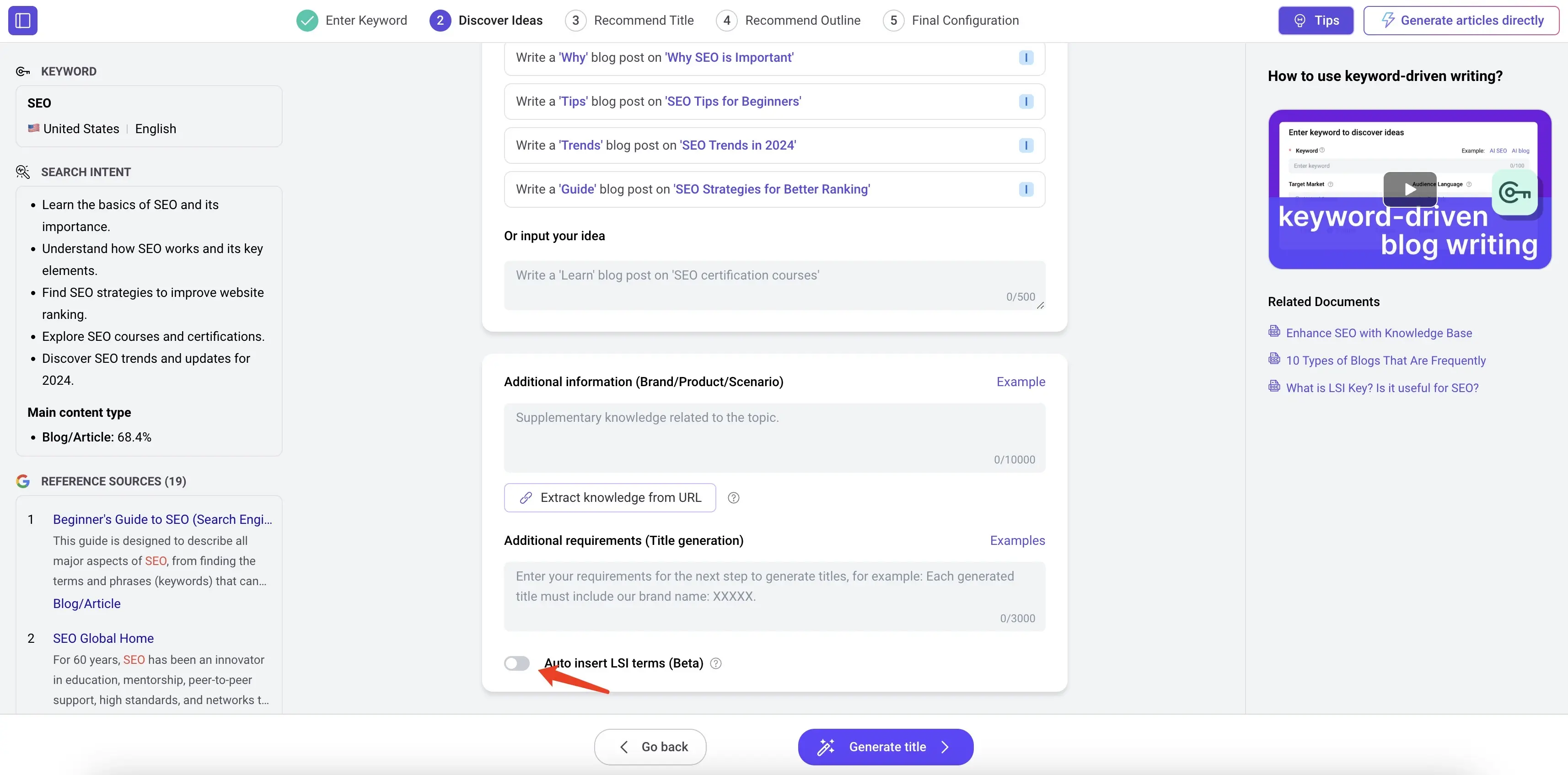Insert Relevant Keywords
Relevant keywords are words or phrases that are intricately connected to the central theme of the blog you want to write. In addition to the primary keywords you fill in or extract from your input, relevant keywords include:
- Secondary keywords: These are keywords or phrases in addition to your primary keyword that you want to target and rank for.
- Semantic keywords:Semantic keywords refer to words or phrases that are closely related in meaning to a particular topic or concept. These keywords help search engines understand the context and intent behind a user's query, allowing them to deliver more relevant search results.
Unlike traditional keyword optimization, which focuses solely on specific words or phrases, semantic keywords take into account the broader context and semantic relationships between words. For example, if someone searches for "best smartphone cameras," search engines understand that relevant content might also include terms like "photography," "megapixels," "image quality," and "low-light performance."
Why Relevant Keywords is important
Relevant keywords are crucial for several reasons:
- Search Engine Optimization (SEO): Relevant keywords help search engines understand what your content is about, allowing them to rank it appropriately in search results. When users search for information related to your content, having relevant keywords increases the likelihood of your content being displayed to them.
- Targeted Traffic: Using relevant keywords attracts users who are specifically interested in the topic or product you're offering. This targeted traffic is more likely to engage with your content, leading to higher conversion rates and better overall performance.
- User Experience: Relevant keywords ensure that your content aligns with the search intent of users. When users find content that matches their queries, they are more likely to stay on your website, explore further, and potentially convert.
- Competitive Advantage: Identifying and using relevant keywords that your competitors may have overlooked can give you a competitive edge. By targeting niche or long-tail keywords related to your industry, you can capture the attention of users who are looking for specific information or products.
- Content Planning and Creation: Relevant keywords can serve as a guide for planning and creating content. They help you understand what topics are popular and what questions or problems your target audience is trying to solve. This allows you to tailor your content to meet their needs effectively.
Using these keywords lets you establish topical relevance. And helps search engines better understand your content. This means you can achieve better search engine rankings by optimizing your content for both secondary and semantic keywords (aka Relevant keywords).
How Insert Relevant Keywords works
This feature leverages the capabilities of Google Search, semantic analysis, and AI to identify and incorporate relevant keywords into your blog post's title, outline, content, and metadata.

- Google Search:
- The system performs a Google search to find multiple relevant blog articles related to the chosen topic.
- Semantic Analysis and AI Integration:
- Through semantic analysis and AI capabilities, the system identifies relevant keywords from the retrieved blog articles.
- Keyword Application:
- The relevant keywords are applied to various components of the blog post, including:
- Title
- Outline (H2, H3 headings)
- Content
- Page meta (meta title, meta description)